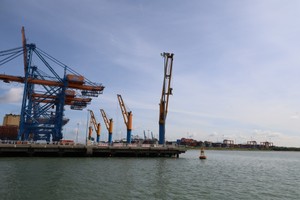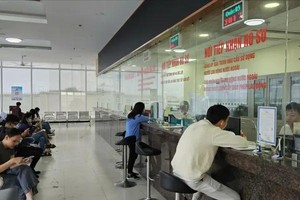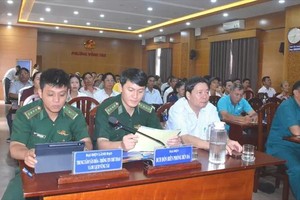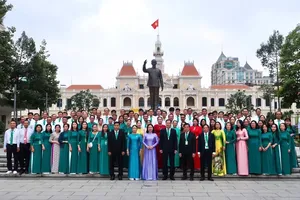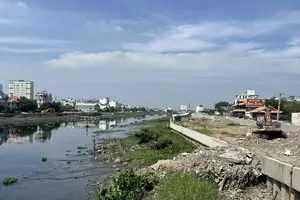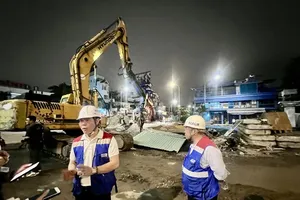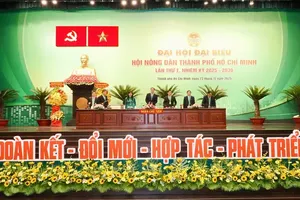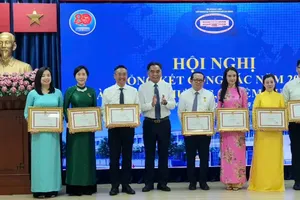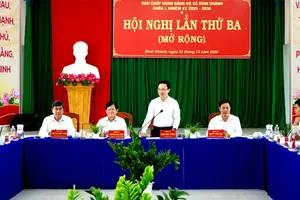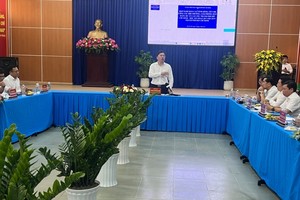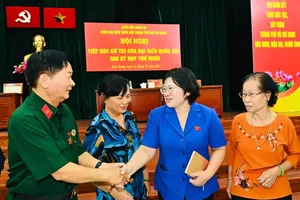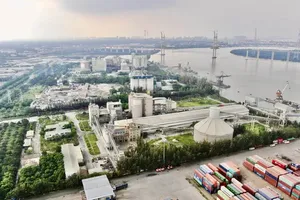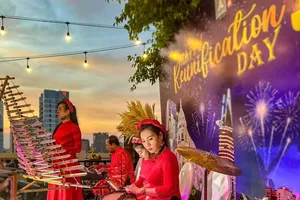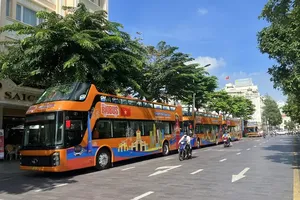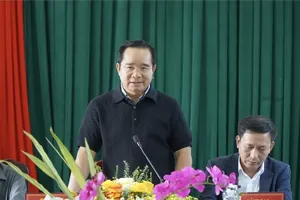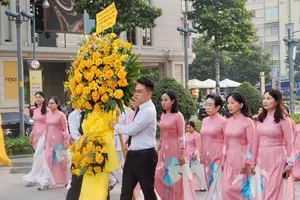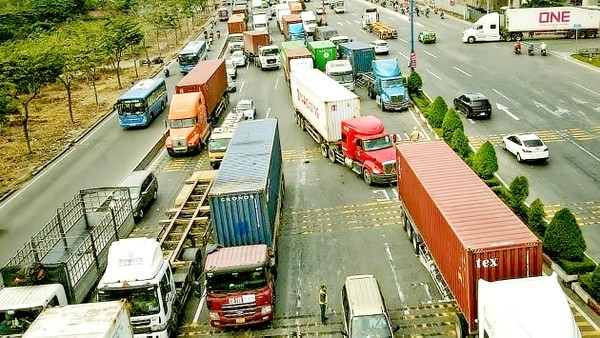 |
HCMC faces problems in implementing many key traffic projects |
The southern metropolis is carrying out pivotal projects such as Ring Road 2, 3, and 4; metro lines No. 1, 2 and Ho Chi Minh City - Moc Bai Expressway, the Ho Chi Minh City - Chon Thanh Expressway, and Can Gio Bridge.
The Southern province of Tay Ninh has approved a resolution to implement the Ho Chi Minh City - Moc Bai expressway project, but Ho Chi Minh City has not yet determined the time to start the project. According to the Investment Law for public-private partnership (PPP) investment, people's committees in provinces must submit a report to their people's councils for approval of the proposal for project implementation. Later, responsible agencies will perform the next steps.
In the past time, the city Department of Transport sent many documents to request the Department of Planning and Investment to review the Ho Chi Minh City - Moc Bai expressway project giving advice to the municipal People's Committee on the expressway project. But up to now, the Department of Planning and Investment is still studying the project due to bottlenecks related to administrative procedures.
The delay in carrying out the procedures for approving the investment policy will increase the site clearance costs of the project and risk capital loss because the price of materials is also very high.
According to the HCMC Department of Transport, currently, the cost of site clearance accounts for about 47 percent of the total project investment.
Meanwhile, Ho Chi Minh City has issued a list of 28 key traffic projects to focus on construction investment from now to 2025. Amongst them, there are many key traffic projects such as Ring Road 2, 3, and 4, the Ho Chi Minh City - Moc Bai Expressway, the Ho Chi Minh City - Chon Thanh Expressway, Can Gio Bridge. Specifically, the city strived to complete the Ben Thanh - Suoi Tien metro line.
Regarding the Ben Thanh - Tham Luong metro line, the relocation packages on technical infrastructure to prepare the ground for construction started this year so that the groundbreaking ceremony of the metro line will be kicked off in 2025. The project dossier of the Ring Road 2 ought to be completed for reporting. However, large capital is expected for the complete construction of the road; thereby, authorities must calculate financial sources carefully. The project’s report on approving the investment policy is expected in 2023 for early construction.
In addition, the city strives to complete the Ring Road 2 at the same time that of the Ring Road 3 by the end of 2025. Simultaneously, the city is also trying to finish the pre-feasibility study document for the Ring 4 project which will expectedly be submitted to the National Assembly for approval of the investment policy in May 2023.
Concomitantly, the city will launch the implementation of the Ho Chi Minh City - Moc Bai expressway, and coordinate with the Southern province of Binh Duong to carry out the Ho Chi Minh City - Chon Thanh expressway. The southern largest city is also studying the records of the Thu Thiem 3 and Thu Thiem 4 bridges.
Regarding mechanisms and policies as well as capital sources for the implementation of the above projects, Director of the HCMC Transportation Works Construction Investment Project Management Authority Luong Minh Phuc said that the projects will be submitted in 2023. The People's Committee of Ho Chi Minh City requires relevant agencies to ensure that the application has been completed.
In the first quarter of 2023, the city will focus on completing this work to determine which projects will be implemented, and which projects are at risk of not being completed. In respect of the Ring Roads 3 and 4, the city will set up a working group consisting of provinces and cities through which the project will pass and representatives of responsible ministries and sectors to review the investment scale, capital sources, and mechanisms for the early implementation of these two routes.
In order to speed up the implementation of projects, the city has proposed to allow the city to consider and decide on the implementation of independent public investment projects to carry out compensation, settlement, and site clearance along traffic routes within the prescribed scope (urban railway, ring road, expressway) and potential locations in the city to implement resettlement projects in the area.
